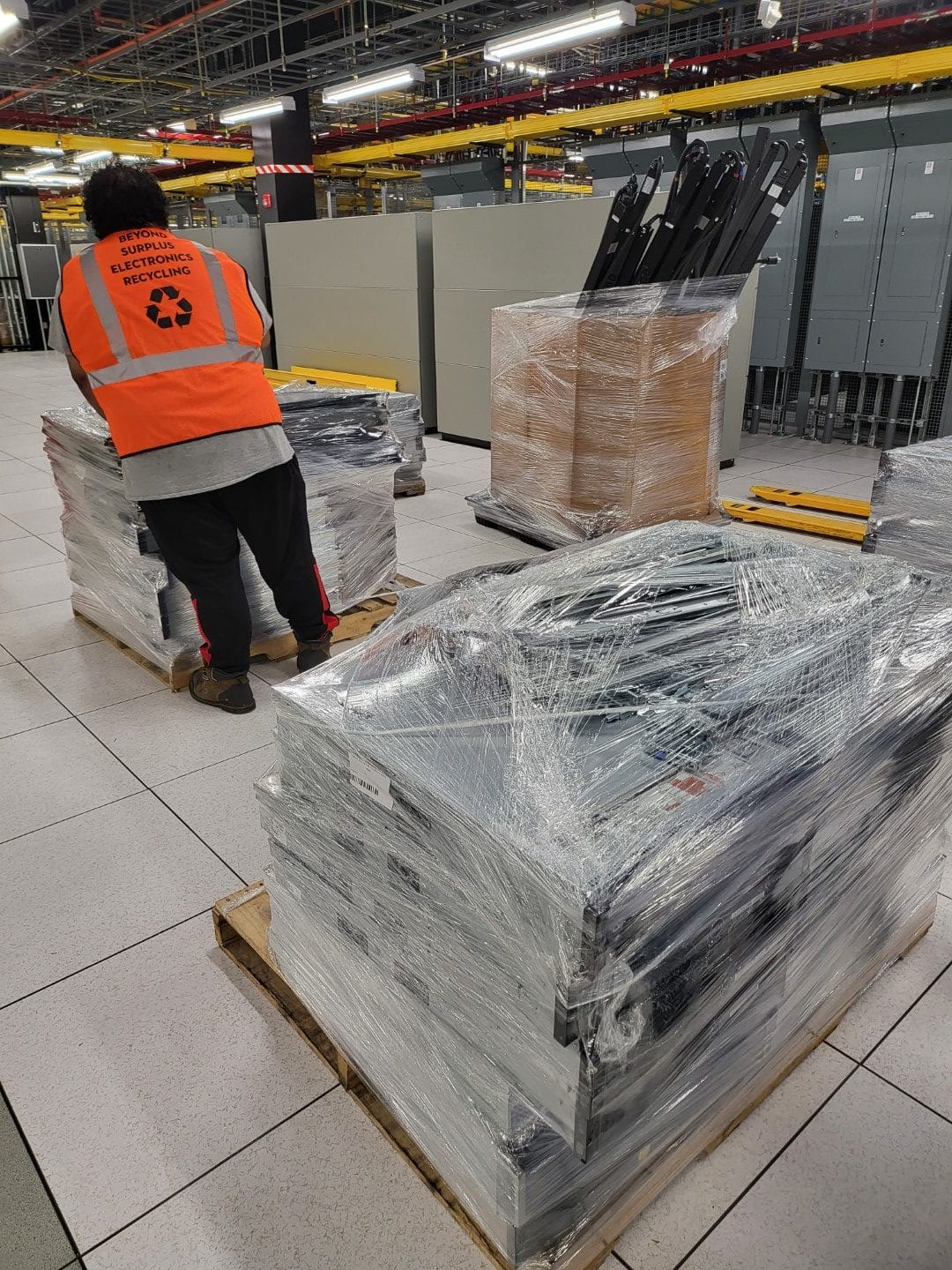Data centers are undergoing a significant change in how they handle their waste and operate electronics recycling. In case you don’t know, data centers have a massive amount of e-waste.
According to the EPA, data centers account for 2% of the country’s overall waste, producing 20% of the nation’s electronic waste. That’s a lot of old computers, monitors, phones, and other electronics!
Fortunately, data centers are becoming more environmentally responsible and looking for ways to recycle their e-waste. That’s why if you’re running a data center business, here are the factors to consider when recycling electronics.

Security
Before recycling any old electronics, you’ll need to erase all the data. This is because electronic devices have tons of stored data, including passwords, account numbers, and other personal information. If this data lands in the wrong hands, people could use it to commit identity theft or other crimes.
That’s why it’s important to use data destruction software to completely erase all the data on a device before recycling it. This will ensure that all your data is permanently destroyed and can’t be recovered.
Environmental Impact
There are harmful chemicals and other substances in your electronic devices. Most of them include:
- Lead
- Cadmium
- Beryllium
- Chromium
- Mercury
- Polyvinyl chloride (PVC)
When these devices are recycled, they can release these harmful chemicals into the environment. This can contaminate soil, water, and air and harm human health and the environment.
That’s why it’s important to use a certified electronics recycler. They will ensure that all the harmful chemicals and substances are safely removed from your devices before they’re recycled. This helps protect the environment and keeps your community safe.
State Laws
The good news is that many states have laws to help protect the environment from the harmful chemicals in electronic devices. These laws require certified electronics recyclers to remove these chemicals before recycling devices.
However, not all state laws are created equal, so you must check your state’s laws to see if they require certified recyclers to remove harmful chemicals. You can also check the Electronics TakeBack Coalition’s State Electronics Recycling Laws map to see if your state has any laws.
Shipping
E-waste is a heavy and bulky material, so it’s important to be mindful of the shipping process. You’ll need to find a recycler that can pick up your devices from your location.
When you contact a recycler, be sure to ask about their shipping process. They should be able to tell you how they will pick up your devices and what kind of shipping container they will use.
Once your e-waste has been shipped, clearly label your package with the words “E-WASTE” or “RECYCLING.” This will help ensure that your package is handled properly and doesn’t end up in the trash.
Cost
Recycling e-waste can be expensive, so find a recycling company willing to work with you on pricing. Ask for a quote and compare prices before choosing a recycling company.
Final Thoughts
Data centers can significantly contribute to lowering the annual production of electronic trash. Not only can they recycle equipment, but they can also help to educate employees and the public about the benefits of recycling. Using the right recycling equipment, data centers can help keep electronic waste out of landfills and reduce the environmental impact of their operations.Beyond Surplus offers convenient and secure electronics recycling for companies that produce a lot of electronic waste. We can help you recycle everything from old computers and printers to cables and circuit boards. Contact us today to learn more about our recycling services and how we can help you reduce your environmental impact!
To get started recycling your old electronics, give us a call at (404) 999-4758 or complete the schedule a pickup form for businesses.


